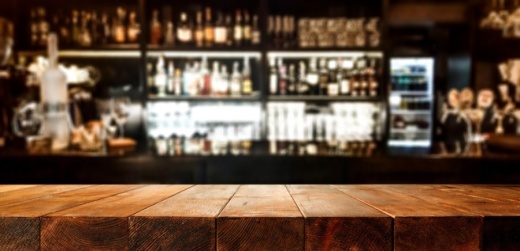After just five weeks of getting back to business following statewide closures due to the coronavirus pandemic, Texas bars such as Two Mules Tavern and The Jailhouse Saloon in the Spring and Klein area were hit with an unexpected second shutdown June 26.
“It was a gut punch for us; I'm sure it was a gut punch for everybody,” Two Mules Tavern Co-Owner Colin Chapman said. “It was out of nowhere, [Gov. Greg Abbott] was speaking the entire week ... about how he doesn't want to do business closures. Then we wake up Friday morning and we're shut down.”
Abbott ordered bars across the state to close their doors for a second time by noon on June 26, as a result of a spike in COVID-19 cases across Texas. Prior to the order, bars were operating at 50% capacity in compliance with Phase 3 of the governor's plan to gradually reopen the state.
“At this time, it is clear that the rise in cases is largely driven by certain types of activities, including Texans congregating in bars,” Abbott said in a news release earlier that Friday. “The actions in this executive order are essential to our mission to swiftly contain this virus and enhance public health.”
Restaurants, which were operating at 75% under Phase 3, were also ordered to reduce their capacity to 50%, effective the following Monday.
“We are very aware of the situation and it is serious, ... but we also have to feed our families and ... our staff should be able to make a living just like anybody else,” The Jailhouse Saloon Owner Dena Wagner said. “Pointing the finger at a 51% [capacity] bar is an overreach. Perhaps there should be more scrutiny on those that don't play by the guidelines that were set out, but for those of us that did, we shouldn't be punished for that.”
According to Wagner, the Preston Avenue bar was taking proper precautions to keep business going during the pandemic. Wagner said sanitation stations were implemented, patrons were asked to stay outside and tables were kept 6 feet apart.
Wagner said the bar was unprepared for the sudden closure and now sits on perishable products that cannot be sold. Additionally, Wagner said she has had to cut off the bar's employees and staff musicians from their work—and subsequent paychecks.
“We're in limbo at the moment,” Wagner said. "We don't know quite what to do. ... We are hoping that this is not a shutdown that is as long as the first one, but we just don't know. We're getting no answers; nobody's giving us any information.”
The Texas Workforce Commission reports 110,700 unemployment claims were filed in the last week, totaling at more than 2.7 million claims filed between late February and July 3.
“[My employees] are not financially prepared for that. They were unemployed for two months; we were open for 33 days,” Chapman said. “How much money can you save with your job in 33 days after two months of being unemployed?”
According to Bobby Lieb, president and CEO of the Houston Northwest Chamber of Commerce, the June shutdown will likely leave many business owners struggling to pay rent without income during this time.
“The second reclosing for certain has to be a greater hardship [for bars] than the first one,” Lieb said. “The business is already on its heels from the first closing so they have diminished cash, ... [and] to reopen, you have to reinventory, ... and there are startup costs associated with getting going again. That's more out-of-pocket money to open again, only ... to be closed.”
Some Texas bar owners have taken political action against the governor’s decision by voicing their opposition in court and in the streets in protest of the order.
Chapman, who appeared in a May 12 video asking the governor to reopen the industry in the first round of statewide closures, said the protests signify the industry's unity during this challenging time.
“We're in a very competitive business, and all these people suddenly realized that ... we're a community and we've got to work together, because nobody else is fighting for us,” Chapman said. “Our basic message is the message of the protest: we can do the exact same thing that restaurants do, ... the only difference is that for some reason, we have to be the scapegoat for everybody.”





